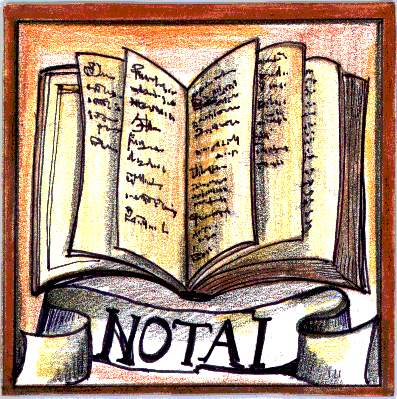THE NOTARY-PUBLIC
|
THE NOTARY-PUBLIC |
 |
The notary-public had to swear to the Council not to write
acts or false texts and to use in public acts, paper containing neither fluff nor used
paper where writings had been previously erased. Besides this he had to swear not to add or take away anything that could modify even a little, what had been established, if not expressely requested by the people involved. The notary-public had to keep the secret about what was told him until the question became of public knowledge. The notary-public had the right and the duty to defend the orphans' and the widows' interests since they were considered socially weak and undefended. If the notary-public made a false act, he had to be punished with fines or with the cutting of his hand. Besides, his face had to be painted on the front of the townhall, with a |
cartouche containing the name and the reason for the penalty.
In order to practise the profession of Notary Public one had to pay a certain sum of money to the Council and therefore this profession was widespread among the middle class. Notary publics were considered very important in Ivrea, so much so that at ST. Mary’s Festival they had to carry a torch like the one carried by the Credendari.